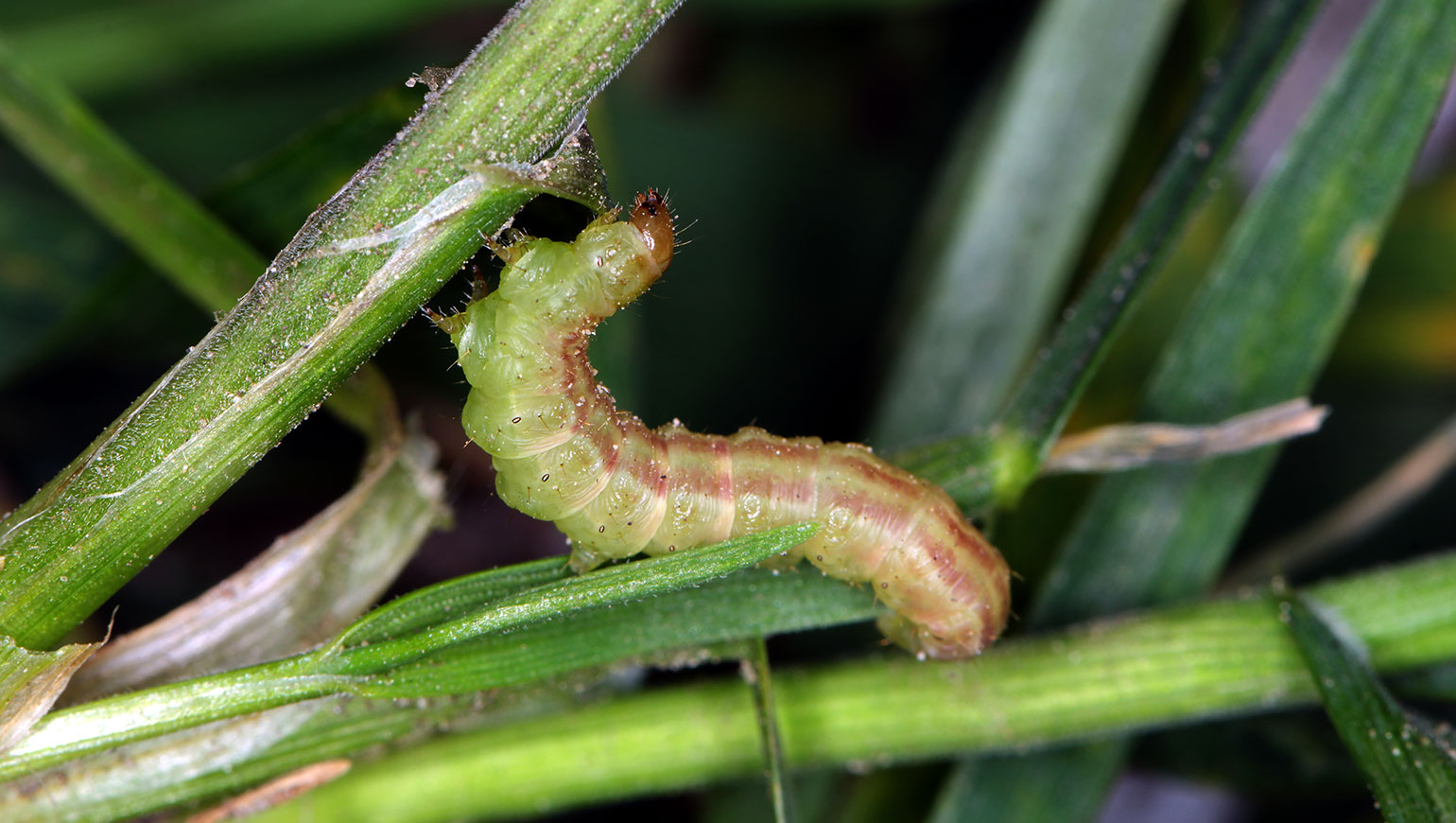Is deadly armyworm coming to Britain?
Scientists warn of plague of crop-eating caterpillars heading towards Europe

A free daily email with the biggest news stories of the day – and the best features from TheWeek.com
You are now subscribed
Your newsletter sign-up was successful
One of the deadliest crop pests in the world may be on the way to the UK, experts are warning.
The fall armyworm “has cost African economies billions of pounds in crop losses since the American pest was first spotted on the continent two years ago”, says The Daily Telegraph.
And according to distribution models developed by experts working for the European Commission, it could now spread to southern Europe across the Mediterranean, or via the Sinai Peninsula and the Levant.
The Week
Escape your echo chamber. Get the facts behind the news, plus analysis from multiple perspectives.

Sign up for The Week's Free Newsletters
From our morning news briefing to a weekly Good News Newsletter, get the best of The Week delivered directly to your inbox.
From our morning news briefing to a weekly Good News Newsletter, get the best of The Week delivered directly to your inbox.
The misleadingly named species is actually “a hungry caterpillar that eats crops before turning into a moth”, says the BBC.
They reproduce at a phenomenal rate, with each female laying about 1,000 eggs in a ten-day lifetime. And “though they may be slow crawlers, they are strong fliers”, says The Guardian. Every year, the fall armyworm “travels from Mexico to Canada” a distance of more than 2,000 miles, the newspaper adds.
“It is one of the deadliest crop pests in the world,” said Boddupalli Prasanna, director of the Mexico-based Global Maize Programme at the International Maize and Wheat Improvement Centre. “It attacks several crop species, not just maize. Each female moth can lay 1,000 to 1,500 eggs and each moth population can fly almost 100km [62 miles] per night.
“That is the reason why it has spread to more than 38 countries in Africa within a span of two years. It is one of the biggest [pest] invasions Africa has ever experienced.”
A free daily email with the biggest news stories of the day – and the best features from TheWeek.com
Climatic conditions in southern and northern Spain, as well as in the boot of Italy, are also “suitable for the establishment of fall armyworm populations”, Regan Early, a biologist at Exeter University who sits on the European Commission’s panel of experts, told the Telegraph.
The pest could then become a seasonal visitor to Britain during summer months.
“Butterflies like the Painted Lady can fly across the Sahara, so it is possible fall armyworms could do the same,” Early said. “If it becomes resident in Morocco then, absolutely, it will be making migrations into the south of Spain, up through France as far as the UK, potentially.”
The expert panel also predict that the caterpillar could reach the Nile Valley this year or next, posing a major threat to Egypt’s cotton industry, and providing another access route into Europe via Turkey and Greece.
Chemicals “can be used to deal with the pest in its early stages”, says the BBC but after that it becomes much harder, and “some populations of fall armyworm have developed resistance”.
In the US, the problem has been mitigated by the widespread use of genetically modified crop strains that are impervious to fall armyworms. However, in Europe, where “far fewer transgenic crops are planted because of widespread opposition to agronomic genetic engineering, farmers are much more vulnerable”, says the Telegraph.
-
 How the FCC’s ‘equal time’ rule works
How the FCC’s ‘equal time’ rule worksIn the Spotlight The law is at the heart of the Colbert-CBS conflict
-
 What is the endgame in the DHS shutdown?
What is the endgame in the DHS shutdown?Today’s Big Question Democrats want to rein in ICE’s immigration crackdown
-
 ‘Poor time management isn’t just an inconvenience’
‘Poor time management isn’t just an inconvenience’Instant Opinion Opinion, comment and editorials of the day
-
 Epstein files topple law CEO, roil UK government
Epstein files topple law CEO, roil UK governmentSpeed Read Peter Mandelson, Britain’s former ambassador to the US, is caught up in the scandal
-
 Iran and US prepare to meet after skirmishes
Iran and US prepare to meet after skirmishesSpeed Read The incident comes amid heightened tensions in the Middle East
-
 Israel retrieves final hostage’s body from Gaza
Israel retrieves final hostage’s body from GazaSpeed Read The 24-year-old police officer was killed during the initial Hamas attack
-
 China’s Xi targets top general in growing purge
China’s Xi targets top general in growing purgeSpeed Read Zhang Youxia is being investigated over ‘grave violations’ of the law
-
 Panama and Canada are negotiating over a crucial copper mine
Panama and Canada are negotiating over a crucial copper mineIn the Spotlight Panama is set to make a final decision on the mine this summer
-
 Why Greenland’s natural resources are nearly impossible to mine
Why Greenland’s natural resources are nearly impossible to mineThe Explainer The country’s natural landscape makes the task extremely difficult
-
 Iran cuts internet as protests escalate
Iran cuts internet as protests escalateSpeed Reada Government buildings across the country have been set on fire
-
 US nabs ‘shadow’ tanker claimed by Russia
US nabs ‘shadow’ tanker claimed by RussiaSpeed Read The ship was one of two vessels seized by the US military